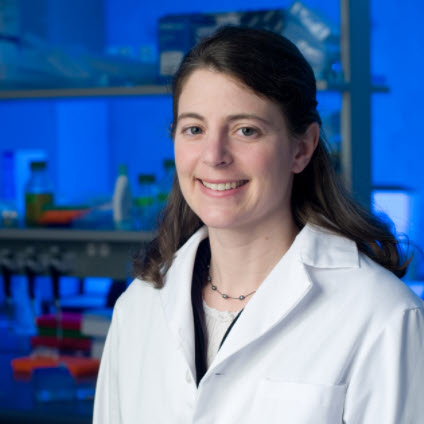
Research Interests
Cancer, Cancer Genetics, Developmental Biology, Genetics, Melanoma, Molecular Biology
Research Focus Teams
Cancer
Departments
Contact
Email: c.vr@ubc.ca
Office Phone: phone: 604–827–4224
Publications
Lab Website
Bachelor of Science, The College of William and Mary, 1991-1995
PhD in Molecular Biology, Princeton University, 1995-2001
Post-doctoral Fellow, Stanford University, Department of Genetics, 2001-2006
Associate Professor, Medical Genetics, University of British Columbia, 2006-present
Canadian Institutes of Health Research New Investigator, 2006-2011
Michael Smith Foundation for Health Research Scholar, 2011-present
Our research focuses on the biology of melanocytes, the cells that pigment the skin, eyes, and hair. One major emphasis of the lab is the study of uveal melanoma, the most common intraocular cancer. Uveal melanoma has no effective treatment options in metastatic cases. With our colleagues, we identified the first oncogenes that drive uveal melanoma formation in people: GNAQ and GNA11.
These two closely related G proteins are mutated in a mutually exclusive pattern in most uveal melanoma cases. Our lab has also engineered the first GNAQ mouse knock-in, which develops metastatic uveal melanoma. This mouse model and human melanoma samples are currently being used to investigate the signaling pathways and possible therapeutic targets downstream of oncogenic GNAQ, with the goal of improving the outcome of uveal melanoma in humans.
Our lab investigates pigment cell biology and melanoma, which is a cancer of pigment cells. Melanoma accounts for only 1% of skin cancers, but it causes a majority of skin cancer deaths. It is also the most common ocular cancer. Rates of melanoma have been rising rapidly. Our lab studies this problem mostly in mice, forcing them to develop melanoma through genetic manipulation of oncogenes and tumor suppressors. We are also finding intriguing connections between how pigment cells (called melanocytes) form in the embryo and the types of melanoma these cells give rise to later in life. Although melanoma is the most pressing concern, we are also curious about other pigmentary abnormalities, such as freckling and skin hypo-pigmentation.
For most up-to-date summary of our research, please visit our lab website: http://www.vanraamsdonk.ca